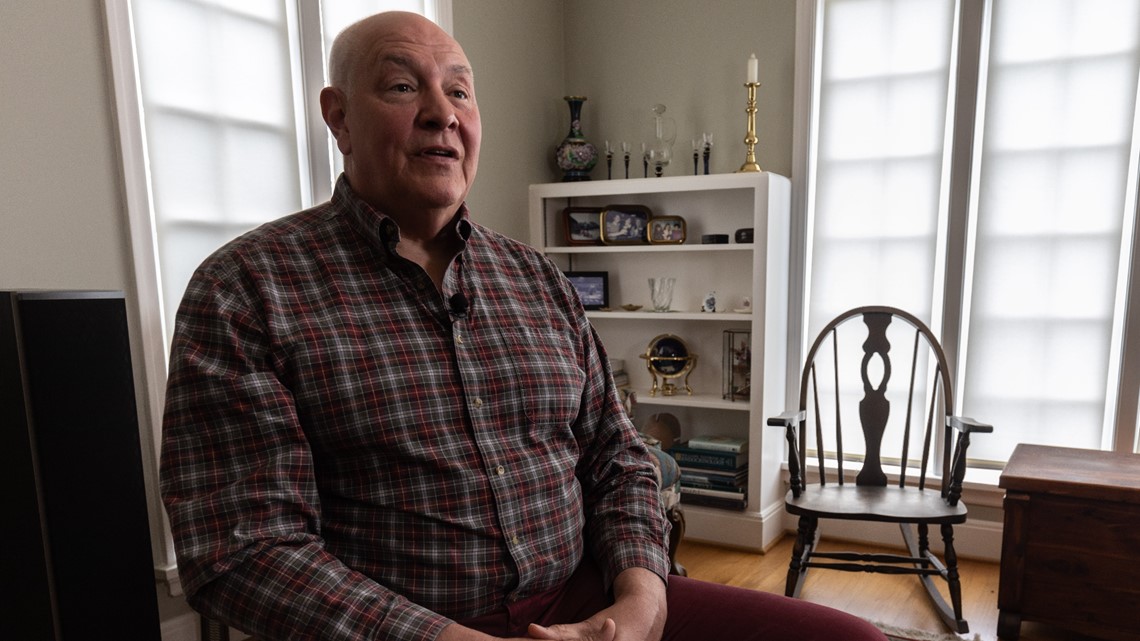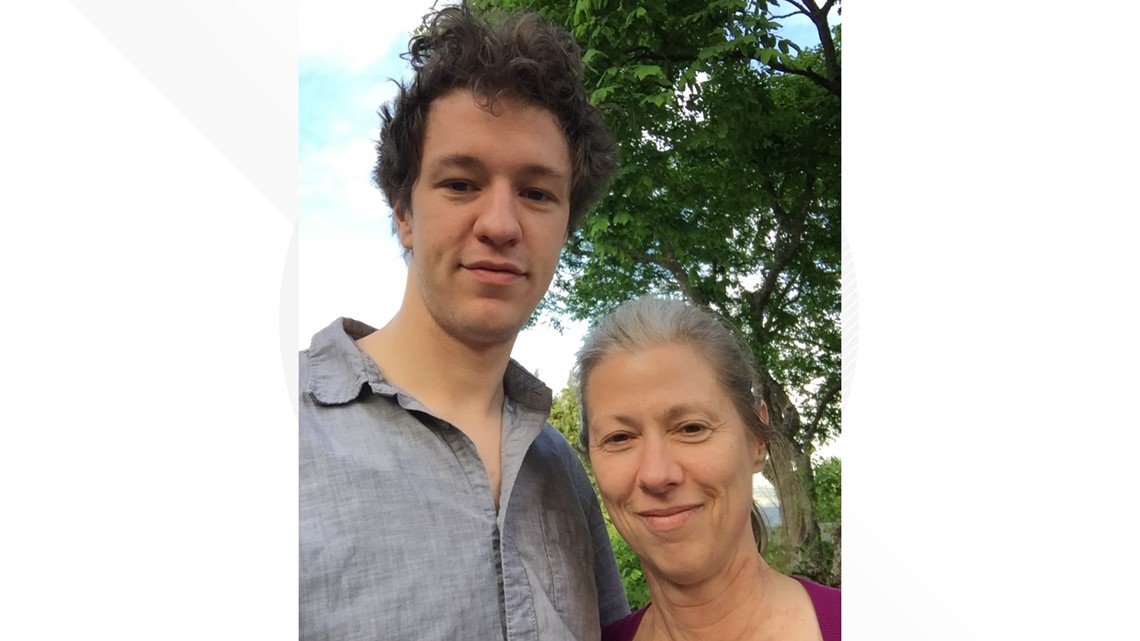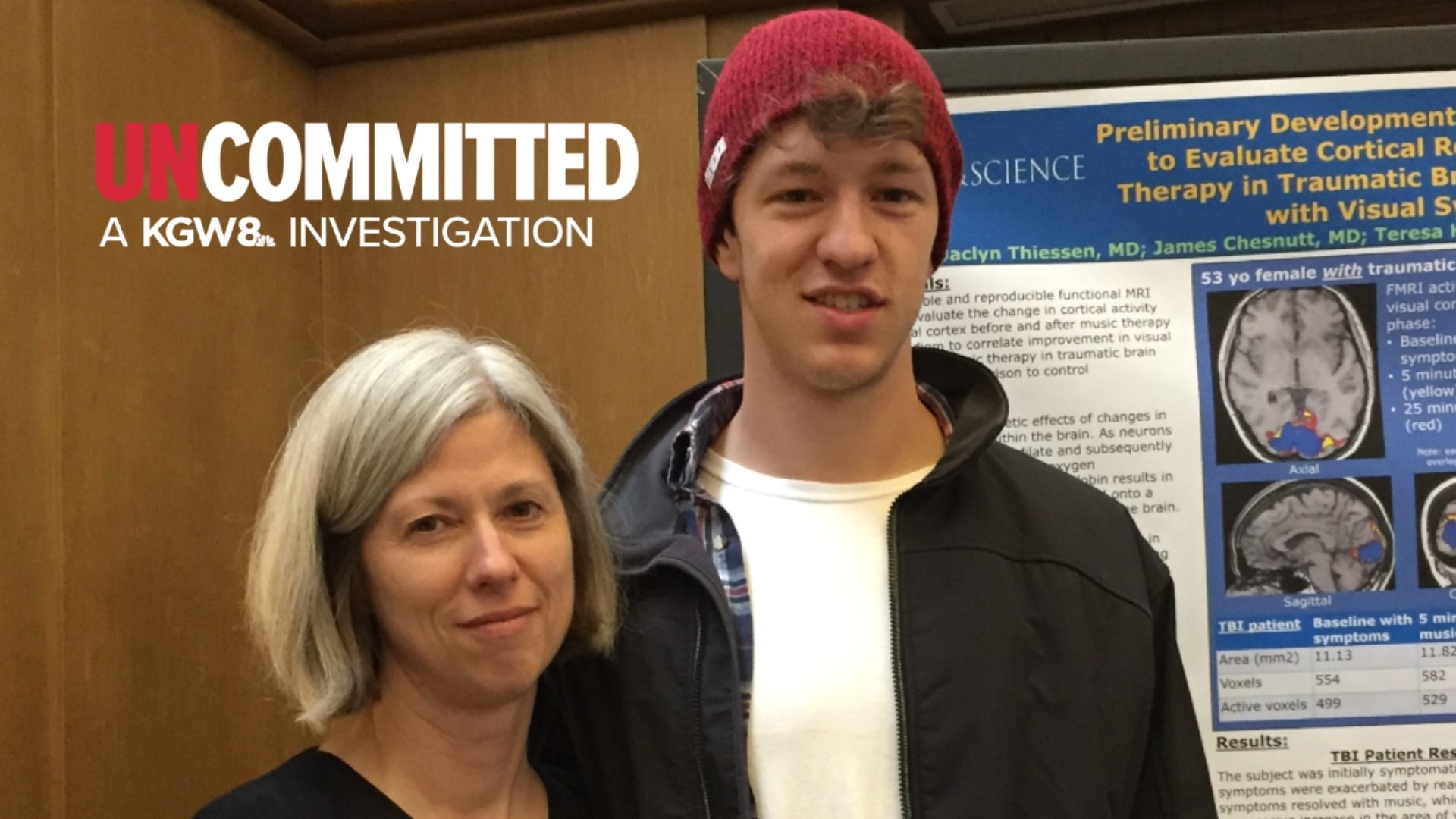PORTLAND, Ore. — Austin Graham thought people were poisoning the water and air around him, trying to kill him.
His parents — Hunter and Teresa — watched their son’s mental illness get progressively worse from their Southwest Portland home.
Seeking help for their son, the Grahams tried local hospitals, voluntary treatment at a mental health facility, and even guardianship. Nothing could compel Austin into treatment for severe mental illness.
In November, Austin Graham confessed to murdering his mother, telling police he strangled her to death in their family home in what Hunter Graham believes was a psychotic episode.
“You shouldn't have to commit murder to get mental health care, but that's what our son Austin did to my beautiful wife, Teresa,” Hunter Graham told KGW.


No right door
Hunter and Teresa Graham first started noticing mental changes in Austin when he went off to college. He couldn’t finish his biomedical engineering degree and moved back home.
After a bad fall, his mental decline accelerated.
“It’s been really hard to tell whether his struggles were from pre-existing mental illness or as a result of the concussion or a mix of both,” Hunter said.
Later diagnosed with "unspecified psychosis," Hunter said it was apparent to all that Austin had some form of anosognosia — a neurological condition in which a person is unaware of their own mental illness.
“It makes sense, the thing that tells you you’re sick — your brain — is the thing that’s sick,” Hunter said.
In 2023, Austin started secluding himself in his room, neglecting personal hygiene and allowing food to rot while refusing entry to anyone else.
Hunter said it was clear that Austin needed help, even if he was resistant to care.
“Immediately we discovered what you’ve discovered in your (past) reporting, which is, involuntary commitment is almost impossible,” he said.
In July, Austin was admitted to the Kaiser Permanente Brookside Center, a voluntary inpatient mental health hospital in Clackamas.
Hunter said that the doctors there found Austin to be "beyond their capacity" and were looking to transfer him somewhere else when Austin experienced a severe psychotic break. He grabbed a nurse’s badge, ran away from the locked unit, and disappeared into the woods for two days. Police later found him with blackberry thorns in his feet.
Through multiple hospital visits, Austin had refused medication and medical professionals determined that Austin didn’t meet Oregon’s standards for involuntary treatment.
UNCOMMITTED: How high standards are fueling a cycle that can fail people with serious mental illness
“There was going to be no way to break the cycle without medication, but we were told that it was unethical to medicate him in his current state because he wasn’t a danger to himself or others,” Hunter said.


'Set up to fail'
The Grahams felt there was one path left to pursue: guardianship.
Often a difficult, expensive and time-consuming process, the Grahams applied for guardianship through the Multnomah County Circuit Court, explaining that Austin was in “immediate and serious danger” and his mental health was “decompensating rapidly.”
A judge approved guardianship in August, giving Austin’s mom, Teresa, the authority to make some medical and financial decisions for him — with the goal of getting Austin to stay in a hospital and accept treatment.
Even that was easier said than done.
“He’s 6-foot-6 like me, and even if you have the right to say you need to go to the hospital, if he refuses, that’s a significant logistical problem,” Hunter said.
While under a guardianship hold at a local hospital, doctors observed Austin and offered care but decided they couldn’t force him to take medication based on Oregon’s standards for involuntary treatment, according to Hunter.
Despite his psychosis, after an 11-day stay, doctors released Austin back to the family home with a behavioral health plan — a plan Hunter called "unenforceable."
“My wife in her wisdom did not want him released because we knew he was going to fail, that the behavioral health plan was set up to fail,” he said.
Still, the Grahams held out hope that Austin would agree to treatment and get better.
“We were always optimistic that we would get a handle on this and he would go back to the bright, articulate, promising son that he is and was,” Hunter Graham said.


'I think I just killed my mom'
The behavioral health plan did fail.
In October, Austin strangled his mother to death in their home. His father, Hunter, wasn’t home at the time.
“The failure was that he killed her,” Hunter said, fighting back tears.
Initially, Portland police saw no signs of foul play and didn’t suspect Austin. Hunter said he was stunned as his wife was very healthy.
However, homicide detectives returned to the house a few days later, presumably after the initial autopsy.
Two weeks after Teresa’s death, Hunter was in the hospital with his son Austin when Austin called 911 and confessed to police.
Austin told the 911 operator “I think I just killed my mom” and “she died and I saw her die,” according to a probable cause affidavit.
After police responded and arrested Austin, he wrote “I killed my mom” and “strangled her with my bare hands” on the back of his Miranda rights advisement, according to detectives.
Hunter Graham said he and Teresa had been worried about something dangerous happening, that’s why they tried every avenue for mandated treatment.
“We were concerned, but we also relied on what the hospital evaluation was, that he was a low risk,” he said. “In all honesty, I suspected that from the moment I heard about (Teresa’s death).”
Teresa and Hunter Graham had been married for 33 years. She was an endocrinologist, researching ways to help people with diabetes and osteoporosis.
She’s described as having the rare combination of very high intellect with an even bigger heart.
“You know, I considered us very fortunate. She is a doctor, I'm a lawyer, we have resources,” Hunter Graham said. “Even with all that, we failed spectacularly.”


Treatment after tragedy
Austin Graham is charged with murder and is now being held — and treated — at the Oregon State Hospital after a judge found him mentally unfit for trial.
“Treatment would have undoubtedly, in my mind, prevented this,” Hunter said.
Hunter visits his son at the Oregon State Hospital, visits that are heartbreaking for many reasons.
“With treatment he’s much better,” Hunter said during an interview with KGW. “I saw him yesterday in Salem and the problem with being much better is he realizes what's happening and what's going on.”
Hunter Graham said there’s a lack of understanding about how Oregon’s system feels designed to wait for something terrible to happen before mandating care to someone with severe mental illness — pointing out the need for secure residential facilities and community-based treatment options that accept challenging cases.
“Nobody should have to feel this way,” he said. “The public, the legislature, health care workers, police, everybody needs to know how bad it can get so everybody is dedicated to fixing it.”
He remembers his wife Teresa, who tried her best to find answers.
“She tried to take care of Austin," Hunter said. "She was still trying, up until the end.”
This is part one of a three-part KGW "Uncommitted" series exploring how Oregon has effectively criminalized severe mental illness over the past five years, often waiting for individuals to commit a serious crime before mandating treatment. The reports will air at 6:30 p.m. during KGW’s The Story broadcast this week.

